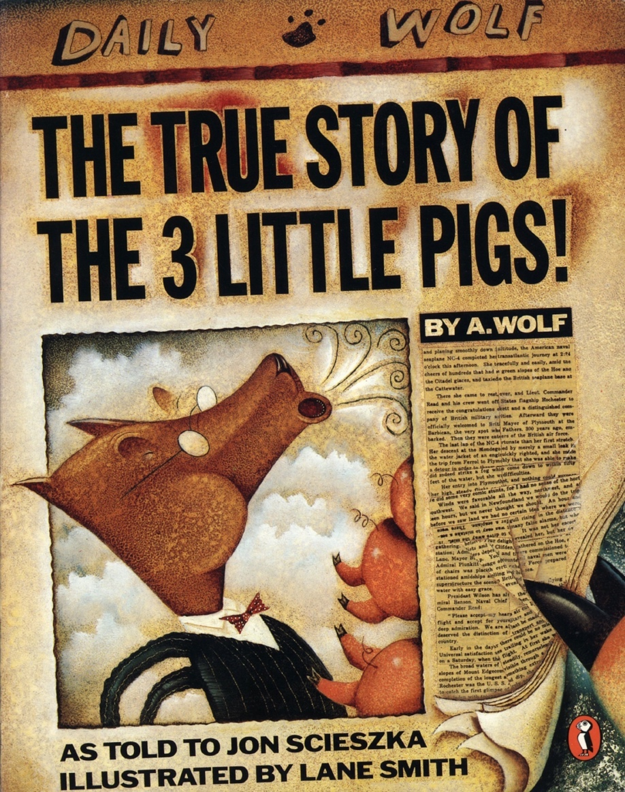 We’re all extremely familiar with the bedtime story of the three little pigs - or so we thought! In 1989, American writer Jon Scieszka decided to publish a parody of the story by telling this story from the perspective of the ‘big bad wolf’, who now appears to be nothing more than an unlucky fellow looking for a cup of sugar.
We’re all extremely familiar with the bedtime story of the three little pigs - or so we thought! In 1989, American writer Jon Scieszka decided to publish a parody of the story by telling this story from the perspective of the ‘big bad wolf’, who now appears to be nothing more than an unlucky fellow looking for a cup of sugar.
Some philosophers believe that it is impossible to ever obtain ‘truth’ about an event that has occurred, as narrators’ feelings and perceptions unintentionally influence their experiences, hence the actuality of an event becomes at risk of subjectivity. Have you ever experienced similar situations where no two individuals remember a common event the same way? Which version of the story appeals to you more, and why?
Does experiencing the same event, but in the shoes of the criminal instead make you feel differently about the ‘bad guy’? Does Al from this story fit into the image sold to us in the traditional version, and if it is different, what could have caused it? How do you think the general public ought to respond to crime? When facing options such as jail, punishment or rehabilitation, what are some of the pros and cons, and which solution is most appropriate for Al?
Al claimed to have committed the crime unintentionally. How much does this spare him from his guilt? From Al’s description, he clearly lives in a society of pigs. What is the status of minorities like Al in that society? Is he treated fairly, or is he stereotyped in any way? After knowing both sides of the story who do you think is the real victim in this tale?

